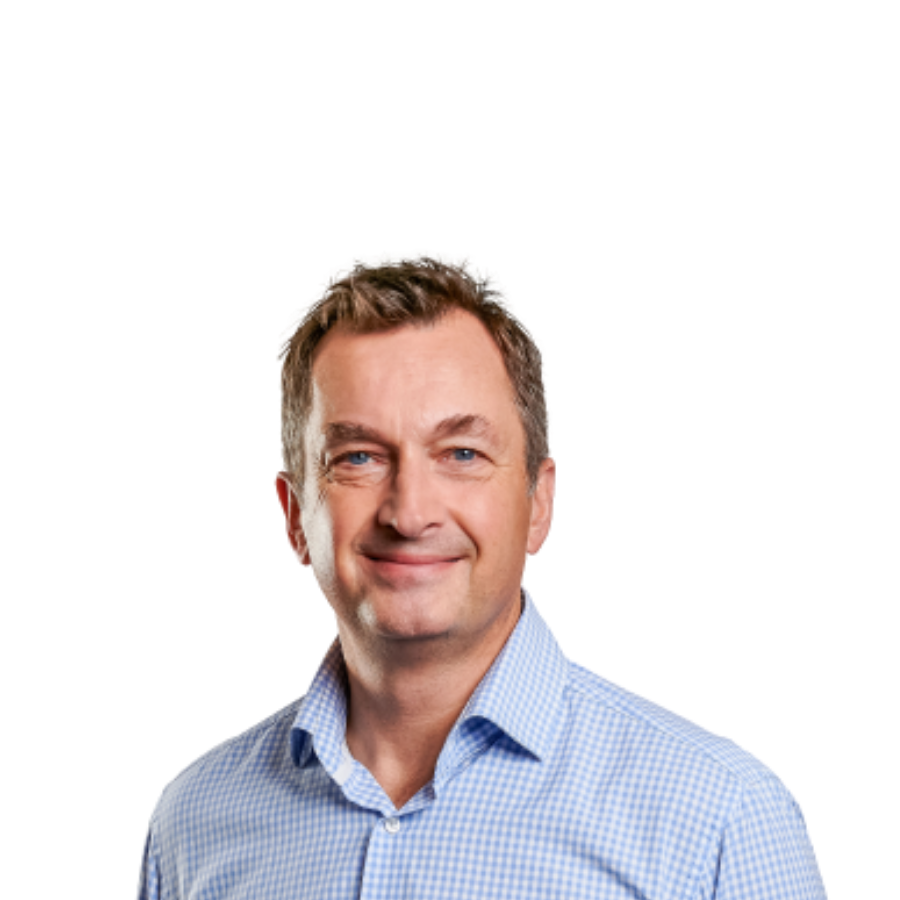A few lessons learnt from leading through a pandemic.
Leadership Blog

Written by Mike Straw

The past 18 months has been a difficult time for everyone, and like most people and businesses the pandemic completely blindsided us.
Within two weeks of COVID-19 hitting the nation we’d lost 70% of our order book. For any business – on paper at least – that is what the jaws of defeat look like.
But just as the numbers were falling out of the bottom of our pipeline, I went to a book signing by Margaret Heffernan, author of Uncharted and Wilful Blindness, and she reminded me of a few very important things.
I remember furiously scribbling quotes on a post-it note that I still have stuck to the computer I’m writing this very article on. Pearls of wisdom like “this isn’t a time to doubt yourself, it’s a time to stand solid in what you do” and “experiment, act fast and go far” were scrawled down as quickly as Margaret could say them.
She was right. Within eight weeks we’d got back to where we were before the pandemic and have been fortunate to have grown since.
This isn’t a hollow brag. It’s a leadership lesson for me: as long as we hold on to the core tenets of what we stand for, and we take action based on our commitments, we can achieve breakthroughs no matter what the world throws at us.
Breakthroughs are in our nature
The idea of experimenting, acting fast and going far reminded me of an old biology lesson from my school days (one of only the few things I remember from my days behind a school desk!)
We learnt that if you put a fungus in a series of petri dishes and give it light, nutrients, and water – it’s ideal conditions – it stays in the middle of the dish as a bulbous mass.
But if you starve it of energy, light, and water, the fungus sends out long spider-like tentacles to go and find energy. This symbolised our own position as Achieve Breakthrough. We needed to experiment, to go and see what was out there for the taking.
Freeing ourselves of assumptions
Last May as the pandemic was getting into full swing, I spoke with someone who worked for a big pharmaceutical company. He told me he’d been trying for the past four years to get DocuSign (an application for gathering electronic signatures for contracts) into their systems and had consistently faced red tape and been told that it wouldn’t work.
But since the pandemic, and an increase in the need to handle matters digitally, all the reasons he was given as to why DocuSign couldn’t be used have miraculously disappeared.
To me that is a prime example of freeing ourselves from our assumptions. Once we become loudly aware of these “truths” and realise they’re not actually true, we can achieve breakthroughs.
The need for transformation and thinking differently has never been more prevalent. The pandemic has given organisations a window of how they can challenge the status quo and operate differently. We just need to hope that the memory of this doesn’t fade, and that we can learn from it and take it forward.
Beating burnout
One of the main pandemic-related barriers we’ve faced – like many others – is burnout. People are exhausted.
I’ve heard people say they’re tired and have too much on at once, and heard others respond to this by saying “well, prioritise then”. But it takes energy to prioritise. When people aren’t fully charged, they aren’t resourceful. And if they aren’t resourceful, they will never commit to their life’s best work.
Our context is decisive, so leaders need to take their mask off and invite the rest of their team to do the same and have genuine discussions about how they’re feeling.
We need to ask ourselves what is lifting us up and thrusting us forward? And what is weighing us down and dragging us backwards? The only way to unpick it is through conversation, and leaders need to be the ones opening up these dialogues.
Commitment and Taking Responsibility
What I’ve learned, again, is the steps to designing breakthroughs remain the same. We need to liberate our thinking from the past, spark ambition by committing to what we want to accomplish, take 100% responsibility, and take rapid action.
The key ingredients in uncertain circumstances are responsibility and commitment. While external factors may be out of our control, we still need to understand that we are 100% responsible for, how we choose to respond to those factors, and still boldly commit to an ambitious future.
We need to take permission to have responsibility for everything that goes on around us. It doesn’t necessarily mean we can do everything we want to, and a global pandemic has certainly been a trying time to achieve anything, but we still need to see ourselves as the author of what happens next.
A pioneer isn’t stopped by what’s not working; they find another way to work in that set of circumstances. Marketplaces are volatile and uncertain at the best of times. Covid has been the ultimate disrupter.
If we can take responsibility for ourselves in the face of uncertainty. If we can apply that to every facet of our organisation’s work, then we can hold the possibility that nothing – not even a global pandemic – can stop us.
Looking to achieve the impossible? Get in touch to explore how we can help you ignite your ambitions.
Published 28/09/2021
Subscribe by Email
Achieve more breakthroughs. Get expert leadership ideas, insights and advice straight to your inbox every Saturday, as well as the occasional bit of news on us, such as offers and invitations to participate in things like events, webinars and surveys. Read. Lead. Breakthrough.
Tags
- Attracting talent
- Behaviour change
- Blended Learning
- Breakthrough Thinking
- Business partnering
- Career planning
- Change management
- Collaboration
- Communication
- Competitive strategy
- Creativity
- Decision making
- Developing middle management
- Developing millennials
- Developing talent
- Employee engagement
- Entrepreneurship
- High performing teams
- Hiring
- Human Resource Management
- Innovation
- Leadership development
- Learning technology
- Managing people
- Managing uncertainty
- Managing yourself
- Mergers & Acquisitions
- Mindset
- Motivating people
- Negotiation
- Organisational culture
- Organisational development
- Organisational values & purpose
- Performance management
- Productivity
- Programme Management
- Retaining talent
- Strategic thinking
- Strategy
- Strategy execution
- Succession planning
- Team development
- Work-life balance
Related posts
Leadership Blog
Why organisational agility starts with mindset, not operating models
Achieve Breakthrough | 17/02/2026
Leadership Blog
Curiosity as culture: The social glue of high-performing teams
Achieve Breakthrough | 10/02/2026
Leadership Blog
Why better questions build better teams: The cultural case for curiosity
Achieve Breakthrough | 03/02/2026
Leadership Blog
Leading with the handbrake off: Why curiosity is a strategic operating system for uncertainty
Achieve Breakthrough | 27/01/2026
